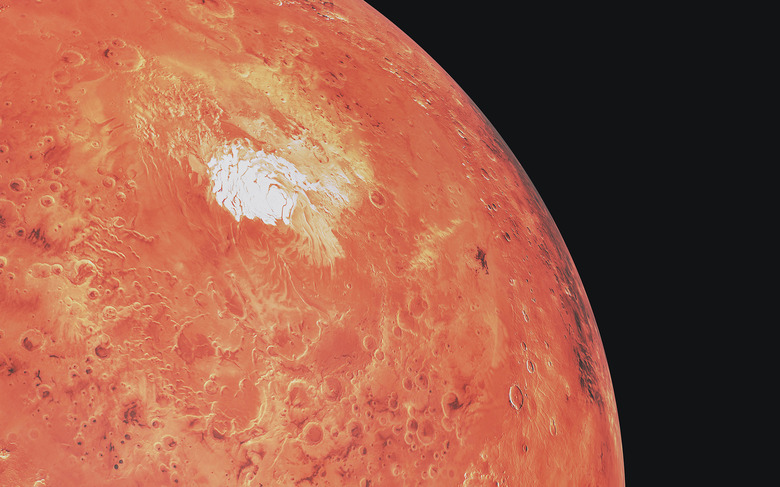Mars Was Once Covered In Water And This Giant Map Shows Us Where
Scientists have long believed that the now dusty Red Planet was once home to rivers, lakes, and other assorted bodies of water. But proving the existence of that water and what happened to it has always been difficult. Data collected over the past decade has allowed scientists to create a map of ancient water traces, confirming Mars was once covered in water.
New map reveals Mars’ water history
Mars is an intriguing planet. Once believed to be abundant in water, the atmosphere has long since thinned, leaving the planet a shell of what it once was. The planet's history has also long been an interest to scientists, with many believing it a strong candidate for space-based colonies at some point down the line.
Many of these beliefs, though, are fueled by the planet's history and the traces of ancient water we've discovered across its surface. Some even say that Mars is hiding water under its surface. Of course, it has been difficult to analyze these components properly. That's because getting sediment and other samples back from Mars hasn't been possible until recently.
However, with the data that NASA and the ESA have gathered from the Curiosity Rover, and now even Perseverance—as well as other spacecraft based around studying the Martian surface—we know that water was once quite abundant on the Red Planet.
The ESA released a video detailing this new Martian water map. The video showcases where we've found ancient traces of water on the Martian surface. These traces often come in the form of deposits of aqueous minerals. These are minerals that have been altered by water, like clay.
Digging for traces of ancient water on Mars
The close-up studies of the Martian surface by Curiosity and Perseverance show that clays are present on Mars. As such, it only makes sense for water also to be present. This new map is, however, a much broader look at where water would have been found on the planet.
Some scientists say that we have oversimplified the Red Planet as a whole. And as a result, we have missed the bigger picture. Instead of seeing these minerals and ancient water traces as the oddity, we should be more intrigued when we don't see them. After all, Mars once had an atmosphere similar to Earth's. And that could have allowed life to blossom there.
Unfortunately, it's hard to say exactly when the atmosphere became so thin and the water dried up. But, with NASA planning to return samples from Mars in the coming years, we could soon have more answers and data to sift through. Researchers published two papers on the subject in the journal Icarus.
The first paper gives a great overlook of where the minerals were found. However, the second paper dives deeper, offering a quantified look at the minerals. These papers have provided important context and groundwork that we needed to establish before properly addressing questions surrounding ancient traces of water on Mars.

